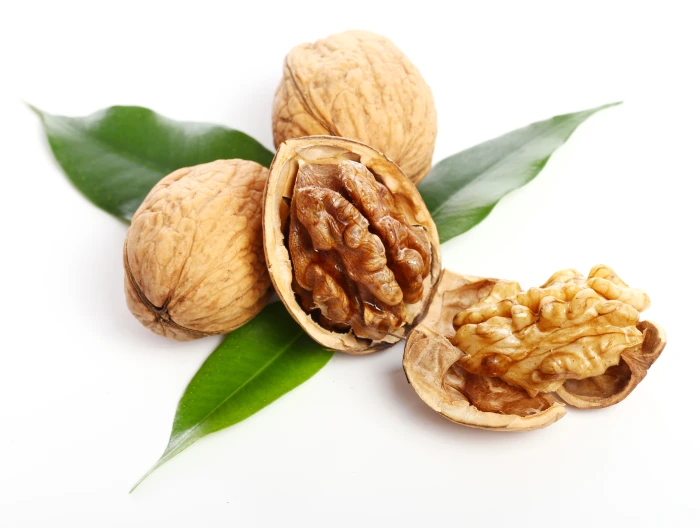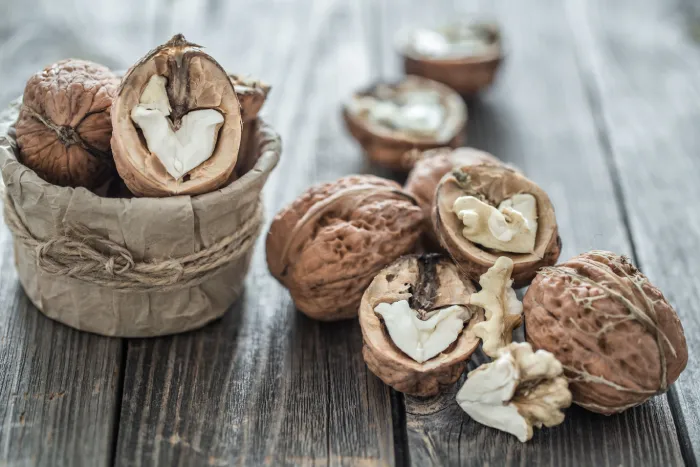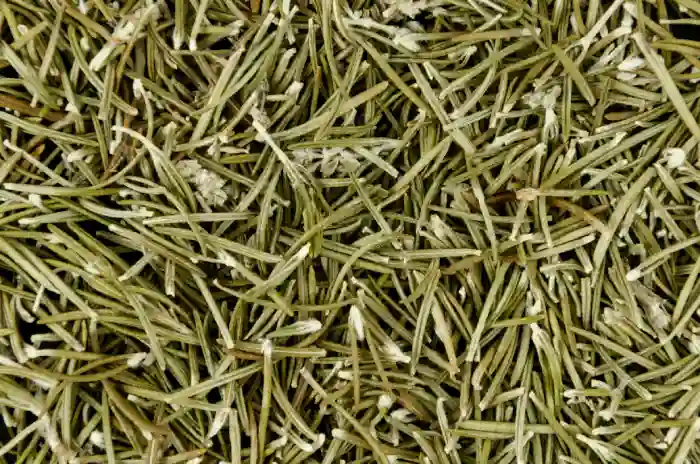Hey there, health enthusiasts! Today, we’re diving deep into the fascinating world of walnut fruit – and trust me, these aren’t just your average nuts. As someone who’s spent years geeking out over superfoods, I’m literally obsessed with how this brain-shaped powerhouse has been living rent-free in the minds of health experts worldwide. Let’s spill the tea on everything you need to know about this incredible gift from nature!
The Amazing Journey of Walnut Trees Through History
Before we get into the nitty-gritty of why walnut fruit is basically the main character in the story of healthy eating, let’s take a quick trip down memory lane. Fun fact: walnut trees have been serving humanity longer than TikTok has been serving dance trends (shocking, I know! 😉). These majestic trees, particularly English walnuts, have been around for thousands of years, living their best life while providing us with their precious fruits.
The history of walnut trees reads like an epic saga spanning continents and civilizations. Ancient Persian gardens were famous for their sprawling walnut orchards, where eastern walnut varieties were cultivated with the same care and precision as modern-day organic farmers. These trees weren’t just food sources; they were status symbols, with their wood being as valuable as their fruits. The eastern walnut, in particular, was considered so precious that it was often included in royal dowries!
Speaking of English walnuts, they earned their name through a fascinating journey of trade and cultivation. Despite originating in Persia, they became known as English walnuts because English merchants were the primary traders of these nuts throughout the known world. The British Empire’s trading routes helped spread these nutritional powerhouses across continents, leading to their cultivation in various climates and soils.
What Makes Walnut Fruit So Special?
Okay, bestie, let me spill some walnut facts that will absolutely blow your mind. The walnut fruit isn’t just a snack – it’s a whole vibe when it comes to nutrition. The complexity of walnut fruit’s nutritional profile is something that continues to amaze researchers and health enthusiasts alike.
The remarkable thing about walnut fruit is its unique structural composition. Unlike other nuts, walnuts contain a perfectly balanced ratio of essential fatty acids, proteins, and minerals. This isn’t just a random occurrence – it’s nature’s way of creating a perfect nutritional package. The walnut’s structure, with its distinctive brain-like appearance, actually hints at its cognitive benefits – talk about nature dropping hints!
The Nutritional Deep Dive
When we talk about the nutritional content of walnuts, we’re entering territory that would make any nutritionist swoon. These little powerhouses contain an impressive array of nutrients that work synergistically to support overall health. The omega-3 fatty acid content in walnuts is particularly noteworthy, as it’s rare to find plant sources of these essential nutrients in such concentrated amounts. A single serving of walnuts provides almost as much omega-3 as a serving of salmon – now that’s what I call plant-based power!
The protein content in walnuts deserves special attention, as it’s not just about the quantity but also the quality. Walnuts contain all the essential amino acids, making them a valuable protein source for those following plant-based diets. The fiber content works in harmony with these proteins, creating a slow-release energy effect that keeps you feeling satisfied and energized throughout the day.

The Miracle of Walnut Oil
When discussing what porosity is walnut seed oil for, we’re opening up a whole new chapter in the walnut story. Walnut seed oil is a remarkable substance with properties that make it unique in the world of natural oils. Its molecular structure allows it to penetrate deeply into whatever it’s applied to, whether that’s wood in furniture making or skin in cosmetic applications. This special characteristic is due to its medium-chain triglycerides (MCT) content, making it one of those precious foods with MCT that health experts consistently recommend.
The extraction process of walnut oil is an art form in itself. Cold-pressed walnut oil retains all the beneficial compounds that make this nut so special. The oil has a delicate, nutty flavor that chefs around the world prize for finishing dishes. Its high smoke point also makes it versatile for various cooking methods, though it’s at its nutritional best when used unheated.
Antioxidant Synergy
The nutritional profile of walnut fruit goes far beyond what we initially understood. Recent research has uncovered fascinating details about how the various compounds in walnuts work together to support health. For instance, the form of vitamin E found in walnuts is particularly bioavailable, meaning our bodies can utilize it more effectively than synthetic versions.
What makes walnuts truly special is how their various antioxidant compounds work together. Scientists have identified over 20 different antioxidant phenols in walnuts, including some rare compounds not commonly found in other foods. These antioxidants work synergistically, meaning their combined effect is greater than the sum of their individual benefits.
The Black Walnut Revolution
Now, let’s talk about black walnut fruit seeds – the mysterious cousin that deserves its own Netflix documentary. Black walnuts are the rebel siblings in the walnut family, with a flavor profile and nutritional makeup that sets them apart from their English relatives. These aren’t your regular walnuts; they’re the ones that make other nuts jealous with their intense, earthy flavor and impressive health benefits.
The story of black walnut seed is deeply rooted in North American history. Native American tribes recognized their medicinal properties long before modern science could explain why they were so beneficial. The outer hull of black walnuts contains compounds that have been traditionally used for their antimicrobial properties, while the nuts themselves pack a nutritional punch that’s even more impressive than their English cousins.
The Science Behind Black Walnut Power
Black walnut seed extract has become a rising star in the world of natural supplements, and for good reason. Research has shown that compounds found in black walnuts have powerful antioxidant properties that may help combat oxidative stress in the body. These antioxidants are different from those found in regular walnuts, with unique molecular structures that make them particularly effective at neutralizing certain types of free radicals.
The tannins found in black walnuts are especially interesting to researchers. These compounds have shown promising results in studies looking at their potential anti-inflammatory and antimicrobial properties. While more research is needed, the preliminary findings suggest that black walnut extract could be a valuable tool in natural medicine.
Understanding the Walnut Harvest: From Tree to Table
The journey of walnut fruit from tree to table is a fascinating process that showcases the intersection of traditional farming wisdom and modern agricultural innovation. Walnut trees typically begin producing fruit when they’re about 4-5 years old, but they don’t reach their full production potential until they’re around 20 years old. These patient giants can continue producing nuts for over a century, making them a truly sustainable food source.
The Art of Walnut Harvesting
The harvesting process of walnuts is a delicate dance between timing and technique. Most commercial walnut fruit harvesting occurs in late August through November, depending on the variety and region. Farmers watch carefully for signs that the outer green hull is beginning to split, indicating that the nuts inside are ready for harvest. This process, known as “hulling,” is crucial for ensuring the highest quality nuts.
Modern harvesting techniques have evolved significantly from the traditional method of hand-picking. Today, specialized machines gently shake the trees, causing ripe nuts to fall onto carefully placed catching frames. This mechanization has made walnut harvesting more efficient while maintaining the quality of the nuts.
Creative Culinary Applications

Walnut fruit versatility in the kitchen extends far beyond simple snacking or baking. Innovative chefs around the world are discovering new ways to incorporate walnuts into their culinary creations. For example, fermented black walnut is becoming a trendy ingredient in high-end restaurants, offering a unique umami flavor that can enhance both savory and sweet dishes.
Modern Cooking Techniques
Contemporary cooking methods are revolutionizing how we use walnuts. Some chefs are experimenting with walnut milk fermentation to create dairy-free cheese alternatives, while others are using specialized grinding techniques to create walnut-based sauces with unique textures and flavors. The growing popularity of plant-based dining has put walnuts in the spotlight as a versatile ingredient that can mimic the texture and satisfaction of meat in various dishes.
The Future is Nutty (and It’s Looking Bright!)
As we look toward the future, the potential of walnut fruit only becomes more exciting. Researchers are discovering new compounds and benefits almost daily, while sustainable farming practices are making walnut trees more productive and environmentally friendly than ever before. The innovation in walnut seed extract products is particularly promising, with new applications being developed in both the health and beauty industries.
Climate change has posed challenges for walnut cultivation, but it has also led to remarkable advances in agricultural techniques. Farmers are developing more resilient walnut tree varieties that can thrive in diverse conditions while maintaining the high nutritional content we’ve come to expect from these remarkable nuts. Some agricultural scientists are even experimenting with urban walnut orchards, bringing these beneficial trees closer to city dwellers.
The Global Impact of Walnut Production
The growing global demand for walnuts has led to interesting developments in international trade and agricultural practices. Countries that weren’t traditionally known for walnut production are now entering the market, bringing their own unique approaches to cultivation and processing. This diversification is good news for consumers, as it means more sustainable and locally sourced options are becoming available.
Innovation in Walnut Products
The future of walnut consumption goes far beyond traditional snacking. Innovative food companies are developing new products that incorporate walnuts in creative ways. From walnut-based meat alternatives to specialized walnut oils for different culinary applications, the versatility of this fruit continues to amaze. Walnut milk is gaining popularity as a sustainable alternative to other plant-based milk options, offering a richer nutritional profile and unique flavor.
Practical Wisdom for Walnut Enthusiasts
Let’s keep it real – maximizing the benefits of walnuts requires some practical knowledge. Storage is crucial for maintaining their nutritional value and preventing rancidity. The best way to store walnuts is in an airtight container in the refrigerator, where they can maintain their freshness for up to six months. For longer storage, the freezer is your best friend, keeping walnuts fresh for up to a year.
When incorporating walnuts into your diet, start with small amounts and gradually increase your intake. This allows your digestive system to adjust and helps you identify any potential sensitivities. While allergic reactions to walnuts are relatively rare compared to other tree nuts, they can be severe, so it’s important to be mindful if you’re trying them for the first time.
Sustainable Practices in Walnut Cultivation
The future of walnut production lies in sustainable farming practices that protect both the environment and the quality of the nuts. Forward-thinking farmers are implementing innovative irrigation systems that use up to 30% less water while maintaining optimal tree health. These systems use soil moisture sensors and weather data to precisely deliver water when and where it’s needed most.
Organic Walnut Farming
The shift toward organic walnut farming represents a significant trend in the industry. Organic walnut orchards support greater biodiversity, with farmers using beneficial insects and companion planting to naturally control pests. This approach not only produces healthier nuts but also helps create resilient ecosystems that can better withstand climate challenges.
Zero-Waste Walnut Processing
Modern walnut processing facilities are embracing zero-waste principles, finding innovative uses for every part of the walnut fruit. The green hulls are being transformed into natural dyes and organic fertilizers, while crushed shells are processed into eco-friendly abrasives for industrial cleaning and sustainable packaging materials.
Innovations in Packaging
The walnut industry is leading the way in sustainable packaging solutions. Some companies are now using biodegradable materials made from walnut shells to create protective packaging for their products. This innovative approach not only reduces waste but also creates a fully circular economy within the walnut production system.
Health Technology and Walnut Fruit Research
The intersection of health technology and research on walnut fruit is yielding truly exciting discoveries. Scientists are leveraging advanced imaging techniques to study in real-time how the consumption of walnut fruit impacts brain function. Through these investigations, new and previously unobservable connections between walnut fruit consumption and cognitive performance are being unearthed. For instance, it’s becoming clearer how the unique nutritional components within walnut fruit might interact with the brain’s neural pathways to enhance memory, attention, or other aspects of cognitive abilities. This not only deepens our understanding of the power of walnut fruit but also opens up new possibilities for using it as a natural cognitive enhancer.
Personalized Nutrition and Walnut Fruit
The emerging field of nutrigenomics in relation to walnut fruit is helping us gain insights into how different individuals can derive unique benefits from consuming this remarkable fruit. Walnut fruit contains a complex blend of nutrients like omega-3 fatty acids, proteins, and various antioxidants. Nutrigenomics studies show that due to genetic variations among people, some individuals may have a better ability to metabolize and utilize these nutrients in walnut fruit, resulting in more significant health improvements in areas such as heart health, inflammation reduction, or even mental well-being. This personalized approach to nutrition centered around walnut fruit is thus enabling more targeted dietary suggestions, allowing people to optimize the benefits they receive from incorporating walnut fruit into their diets.
Global Food Security and Walnut Fruit
With climate change posing challenges to traditional farming regions, walnut fruit is being increasingly recognized for its crucial potential role in global food security. The adaptability of walnut fruit trees to thrive in a wide variety of climates is a significant advantage. Whether in temperate regions or areas with more extreme weather conditions, these trees can still produce nutrient-dense walnut fruit. This makes them an important crop for future food systems, especially as we face the task of feeding growing populations in difficult and changing environments. Currently, extensive research is underway to develop drought-resistant varieties of walnut fruit trees. By creating such varieties, we can ensure a stable supply of walnut fruit even in regions affected by water shortages, thereby helping to meet the food requirements of a larger number of people and strengthening global food security in the face of climate uncertainties.
Final Thoughts: Embracing the Walnut Revolution
As we wrap up this deep dive into the world of walnuts, it’s clear that these remarkable fruits are more than just a healthy snack – they’re a testament to nature’s ability to package complete nutrition in a perfect form. Whether you’re team English walnuts or vibing with black walnut seeds, there’s no denying that walnut fruit is having its moment – and deservedly so!
Remember, bestie, when it comes to incorporating walnuts into your diet, it’s not about following trends – it’s about making sustainable, healthy choices that support your overall wellbeing. And if anyone tries to tell you nuts are just empty calories, feel free to send them this article – because we don’t have time for that negative energy!
Keep living your best, healthiest life, and remember that adding walnuts to your diet isn’t just a choice – it’s a lifestyle upgrade! Period! 💅
[Note: Always consult with your healthcare provider before making significant changes to your diet, especially if you have allergies or specific health conditions. This article is meant for informational purposes only and is not medical advice.]



